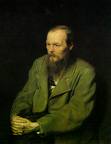Course Details 2014/15
EN201 THE EUROPEAN NOVEL 2013-2014
Course Convenor: Prof Paulo de Medeiros (Room H526, p.de-medeiros@warwick.ac.uk).
Seminar Tutors:
Ms Laura Wood (Room G 03, L.C.Wood@warwick.ac.uk) (Seminar Times: Thursday 13:00-14:00 G 03; Thursday 15:00-16:00 H501; Thursday 14:00-17:00, H501) (Office Hours: Thursday 12:00-13:00 G 03)
Prof Paulo de Medeiros (Room 526, P.de-Medeiros@warwick.ac.uk) (Seminar Times: Mon 10-11, H507) (Office Hours: Mon 12-13, Wed 11-12)
Course Aims:
The European Novel module seeks to provide an understanding of the novel form through the study of works of European long fiction from the late eighteenth to the late twentieth century. It aims to explore key stages and transitions in the history of the form across Europe and the range of narrative possibilities and thematic concerns it encompasses. We will focus in particular on similarities and differences of period, region and culture; on the nature of novelistic narrative and the formal techniques and devices of narration; and on the issues raised by theories of narrative and the idea of realism. Primary texts:
Johann Wolfgang Von Goethe, The Sorrows of Young Werther (1774) Jane Austen, Emma (1815) Gustave Flaubert, Madame Bovary (1857) Charles Dickens, Great Expectations (1861) Fyodor Dostoyevsky, Crime and Punishment (1866) Leo Tolstoy, Anna Karenina (1877) Émile Zola, Germinal (1885) Knut Hamsun, Hunger (1890) Pío Baroja, The Quest (1904) Karin Michaëlis, The Dangerous Age (1910) Dezsö Kosztolányi, Skylark (1924) Halldór Laxness, The Atom Station (1948) Giuseppe Tomasi di Lampedusa, The Leopard (1958), António Lobo Antunes, The Land at the End of the World (1979)
Course arrangements: Terms I and II: The listed novels are extensively discussed in weekly seminars of one hour each, and are also addressed in the weekly lectures. Seminars will consist of about 15 students. The lectures will be centred on one or two of the set texts as indicated on the lecture list but may on occasions refer to other novels and introduce material of historical and critical kinds where these can prove helpful for an understanding of the novel in general. Term III: Seminars are reduced to one or two revision sessions and students are expected to prepare for the final examination. To assist that work, Term III lectures take up issues raised in the first two terms and offer a retrospect on the course, while at the same time indicating further twentieth-century developments and the continuing vitality of the novel form to the present day. Since the reading for the course is necessarily fairly heavy, students are urged to read as many as possible of the prescribed texts in the Summer vacation, and to concentrate on reading these in preference to works of theory or criticism. However, a secondary reading list of critical and theoretical studies is provided in term I, a file of further reading is made available in the Student Reserve Collection, and continuing discussion throughout the year of seminal theories and critical approaches to narrative is an important feature of the course.
Examination arrangements: For students of English/European literature, as well as most joint-degree students, the course is examined by one assessed essay of 5000 words submitted in Week 10 of Term 2 and a 2-hour final examination. The exam paper is split into two sections: 1. An analysis and comparison of two out of three passages from the set texts, paying particular attention to how they are narrated. 2. An essay, in answer to one of four to six questions, which focuses primarily on two of the set texts. Philosophy/Literature students may choose to be assessed in this way or to omit the essay and take a further two-hour examination. In addition, all students are required to write one short non-assessed essay (‘Collections Exercises’, approximately 2000 words each) at the beginning of Term I. This will involve a close reading of two short passages from the prescribed novels and serve both as background to the term’s seminar discussion and as a preparation for the first section of the final examination.
Learning Outcomes: By the end of this module you should have: 1. Deepened your understanding of the set texts and developed your ability to read a novel analytically; attending not only to what it says but also the way that it says it. 2. Acquired an understanding of the novel form and how, throughout its history, it is continually being subverted, transformed and redefined. 3. Acquired an understanding of the formal techniques of narration and their effects: e.g. the role of different kinds of narrator; the question of the author; the differences between various modes of linguistic register; the importance of focalisation; the workings of free indirect discourse. 4. Begun to understand and critically assess the key social, historical and political factors that have shaped these particular novels in national, continental and global settings. 5. Developed your ability to discuss texts comparatively and acquired some understanding of different cultural traditions of fiction as they appear within and between European nations and locales. 6. Acquired some grasp of the theoretical issues raised by the novel form, particularly in transitions from romanticism to realism and modernism in various European contexts. 7. Acquired a contextual framework – geographical/formal/historical – for your reading of European novels in general. 8. Improved your skills in close textual analysis and essay writing.
Seminar Plan of the Module* Autumn Term Weeks 1-2 Introduction and Werther; Week 3 Emma ; Week 4 Madame Bovary; Week 5 Great Expectations; Week 7 Great Expectations/Crime and Punishment ; Week 8 Crime and Punishment; Week 9 Anna Karenina Week 10; Anna Karenina
Spring Term Weeks 1-2 Germinal; Week 3 Hunger; Week 4 The Quest; Week 5 The Dangerous Age; Week 7 Skylark; The Atom Station; Week 8 The Leopard; Week 9 The Land at the End of the World; Week 10 Seminar Tutor/Group Discretion
Summer Term Weeks 2-3 Revision Lectures
*Note that seminar tutors and seminar groups may wish to vary this pattern, which is only indicative.

